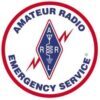KNW-173
Why We Train
Maritime High Seas Emergency Story
On a Thursday in April at about 10 AM Eastern time, the Intercontinental Traffic Net (INTERCON) with Ernie, K4ZQ in Lexington, NC, Net Manager serving as Net Control, intercepted a call on the “Global Center of Activity” IARU designated 20 Meter emergency frequency of 14.300 MHz.
Captain Wilhelm, having no amateur call sign, identified himself as being on board a 38 foot motor sailing vessel in the Central Caribbean, along with his wife, as the two occupants of the sailing vessel Scott. He reported that he was not in any immediate life threatening danger; but that he was suffering from a medical condition. While he declined to declare an ‘Emergency’; he was in need of assistance. With a few preliminary questions, Ernie determined that Wilhelm was indeed in need of help. He was passing 1/4 Liter of blood per day in his urine, had a dry mouth and stomach pains.
The Coast Guard Station in Miami contacted Ernie by telephone; the on duty flight surgeon determined that a medical evacuation was not deemed appropriate at that time. Wilhelm was instructed to strike course for the nearest port; drink an abundance of water; remain out of the sun; take only Tylenol as medication; and keep in close touch through the net frequency, as well as on an undisclosed commercial maritime frequency.
Coast Guard liaison in the Dominican Republic was notified to alert the coastal authorities in that country.
The net frequency immediately shifted to emergency operation conditions; with multiple net relay stations assisting the rotating net control operators throughout the remainder of the day and well into the evening hours.
On Friday morning, while Wilhelm was keeping an almost hourly schedule with various stations as propagation dictated; his signal suddenly dropped down and contact was lost for a period of time.
The sailing vessel Scott was called almost every fifteen minutes. Subsequently, information developed that he was indeed heard from time to time by other vessels in both the Caribbean and the Pacific Ocean; as well as coastal stations on the alert around the region.
With some unstable maritime conditions developing; late in the afternoon, from his on the air reports, it was determined that a Dominican coastal authority vessel should be dispatched to intercept the Scott and escort him into port. He reported his position, course and speed and advised that his running lights were in operation and on high to aid in the nighttime rendezvous.
The happy ending was the report on Saturday morning that while his wife had been having some difficulties in handling the vessel; that they were in port checking thru customs authorities, and he was being treated for kidney stone or gall stone problems. This was a textbook situation in net discipline; net control and net relay station operations and, of course the cooperation of the worldwide amateur fraternity.
“When all else fails … Amateur Radio works”
This is why we train and is the justification for our existence.
That concludes tonight’s training. Are there any questions, comments or suggested additions to this material?
Thanks, this is (callsign) clear to net control.
Send corrections, modifications, updates or suggestions to k5prs@aol.com
